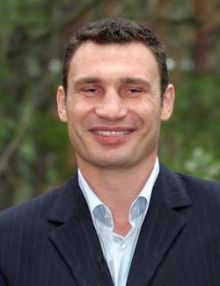If you compare Kyiv to a sick body, our capital city is in a state of crisis, with equal chances for the illness to progress and for recovery. There may be different attitudes to the crisis, but I am taking an optimistic stand. A crisis is a chance for recovery. And even a faint chance is better than a complete impasse.
It is easy to explain what led the capital into a state of fever. At first, the Verkhovna Rada resumed its work and resolved to form an ad-hoc investigative commission to examine the performance of the city authorities. Then the Cabinet of Ministers publicized the results of monitoring the Kyiv City Administration, which humiliated Mayor Leonid Chernovetsky, and also recommended that President Yushchenko dismiss the head of Kyiv’s executive branch. Let’s not forget the criminal proceedings instigated by the Kyiv police in connection with some crafty land schemes.
The chair is shaking underneath Chernovetsky and, anticipating an early end to his ill-famed tenure, the mayor is going from one extreme to the other. First he writes a tearful letter to Yulia Tymoshenko, suggesting that the two of them address Kyiv’s problems. Then he “dismisses” her. A few hours later, another folly: the mayor personally requests to be temporarily removed from office.
Naturally, Chernovetsky is not alone. He has allies, first of all, the powerful oligarchic lobby that is interested in Kyiv’s land and municipal property. But the lobby cannot publicly voice its position: it would be political suicide to back the mayor whose resignation is demanded by 70 percent of Kyivites. In electoral terms, cooperation with Chernovetsky resembles zero multiplication. Whatever figure you multiply, the result will be equally pathetic.
The only entity that publicly sided with the mayor of Kyiv is the Presidential Secretariat. Naturally, Viktor Baloha’s department had more than one option to comment on the situation. His people could have just defended Chernovetsky or admitted that there are certain problems in Kyiv and called upon everybody to tackle them within a purely legal framework. They could have said “no” in different ways, too. They chose the former option. All we have to do now is wait for a public reaction from the president, who is capable of dotting all the i’s and crossing all the t’s in the Kyiv problem.
In my view, Ukraine’s highest-ranking politicians should understand the main thing about the Kyiv and Chernovetsky story: what is going on in the capital is not just a card game with slight cheating on the eve of the presidential elections. In reality, it is a test for both politicians and society. Either we will be able to live a dignified life, like in Europe, or we will degrade to the condition of a banana republic.
Yes, in 2004 Ukraine underwent intensive democracy therapy. Yes, there really are some positive changes. But to use medical terminology again, we are in a crisis. Ukraine is running a high temperature and has the chills, while the board of doctors from the world community shrugs its shoulders: either we recover by ourselves or nothing can help us. To be able to stand on the same rung as the world’s leading countries, one must be ready for self-sacrifice. That is the destiny of those who really love their country.
So, in spite of a very complicated situation, I remain an optimist. There will be an early election in Kyiv, which will signal the catharsis of Ukrainian politics and Ukraine as a whole. We are bound to overcome the growth-related difficulties of democracy, and Europe will treat us as an equal. The main thing is that there is belief in success. This is the principal weapon in my life, which has always led me to victory.







